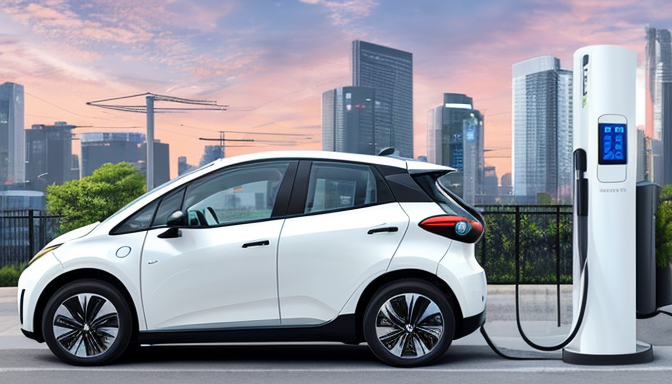When you think about electric cars, what comes to mind? Sleek designs, zero emissions, and the promise of saving money on gas, right? But hold on! Before you jump on the electric bandwagon, it’s crucial to consider the hidden costs that can catch you off guard. You might be surprised at how these factors can shape your ownership experience, both financially and environmentally.
First off, let’s talk about maintenance. Sure, electric vehicles (EVs) have fewer moving parts than traditional cars, which sounds great! However, the reality is that you may face unexpected repair costs related to battery life and the need for specialized service. Imagine needing a battery replacement after just a few years—yikes! Not to mention, finding qualified technicians can be a bit of a headache, especially if you live in a less urban area.
Next, let’s dive into charging infrastructure expenses. Are you ready to invest in a home charging station? Depending on your setup, this could be a significant upfront cost. And if you find yourself relying on public charging networks, prepare for some surprises on your wallet. The convenience of charging on-the-go can come with fees that add up quickly, making you rethink how affordable owning an EV really is compared to traditional vehicles.
In conclusion, while electric cars offer exciting advantages, it’s essential to be aware of the hidden costs that come with them. By doing your homework and understanding these factors, you can make a more informed decision about your next vehicle purchase.
Maintenance and Repair Costs
When you think about electric cars, the first thing that often comes to mind is their eco-friendliness and the savings at the pump. But wait! Have you considered the ? While it’s true that electric vehicles (EVs) have fewer moving parts compared to traditional gas-powered cars, they come with their own set of unique challenges. For instance, the battery, which is the heart of your EV, can be quite pricey to replace. Did you know that a new battery could set you back anywhere from $5,000 to $15,000? That’s a hefty price tag that could surprise many potential buyers!
Moreover, finding a qualified technician for specialized services can be a bit of a treasure hunt. Not every mechanic is trained to handle electric vehicles, which means you might have to travel further or pay a premium for expert service. This can lead to unexpected repair costs that can add up over time. To give you a clearer picture, here’s a quick comparison of common maintenance costs:
| Service | Gas Vehicle Cost | Electric Vehicle Cost |
|---|---|---|
| Oil Change | $30 – $100 | N/A |
| Tire Rotation | $20 – $50 | $20 – $50 |
| Battery Replacement | N/A | $5,000 – $15,000 |
In conclusion, while electric cars offer numerous benefits, it’s crucial to factor in these when considering your purchase. After all, the future of transportation is exciting, but it’s also essential to be prepared for the financial journey ahead!

Charging Infrastructure Expenses
When you think about owning an electric vehicle (EV), the first thing that may come to mind is the environmental benefits and the thrill of driving a cutting-edge machine. However, let’s not forget the hidden costs associated with charging infrastructure that can catch you off guard. Imagine this: you’ve just bought your shiny new electric car, but now you have to figure out how to keep it charged without breaking the bank. Sounds daunting, right?
First off, if you’re considering a home charging station, you might be looking at an initial investment that can range anywhere from $500 to $2,000, depending on the type of charger you choose and installation costs. This is a significant factor to consider, especially if you were expecting to save money by switching to electric. On the flip side, relying on public charging stations may seem convenient, but those fees can add up quickly. Some charging networks charge by the minute, while others may have monthly subscriptions that can feel like a hidden toll on your wallet.
It’s essential to factor in these costs when weighing your options. Here’s a quick breakdown of potential expenses:
| Charging Option | Estimated Cost |
|---|---|
| Home Charging Station | $500 – $2,000 |
| Public Charging (per session) | $5 – $15 |
| Monthly Subscription for Public Charging | $20 – $50 |
In conclusion, while electric cars can be a fantastic investment for the future, understanding the is crucial. Are you ready to embrace the future of transportation, or will these hidden costs steer you back to traditional vehicles? The choice is yours!
Frequently Asked Questions
- What are the hidden costs of owning an electric car?
When you think about electric cars, you might only consider the initial purchase price. However, there are hidden costs like maintenance, battery replacement, and charging infrastructure that can add up quickly. It’s like buying a house and forgetting about property taxes!
- How much does maintenance for electric vehicles typically cost?
While electric cars generally have fewer moving parts, they still require maintenance. Battery health is crucial, and repairs can be costly if you need specialized services. Think of it as a smartphone; the less you use it, the longer it lasts, but when it needs fixing, it can hit your wallet hard!
- Is charging at home really more cost-effective?
Charging at home can be cheaper than using public stations, but don’t forget the upfront costs of installing a home charging station. It’s like investing in a gym membership; it can save you money in the long run if you use it regularly, but the initial investment can be a shock!